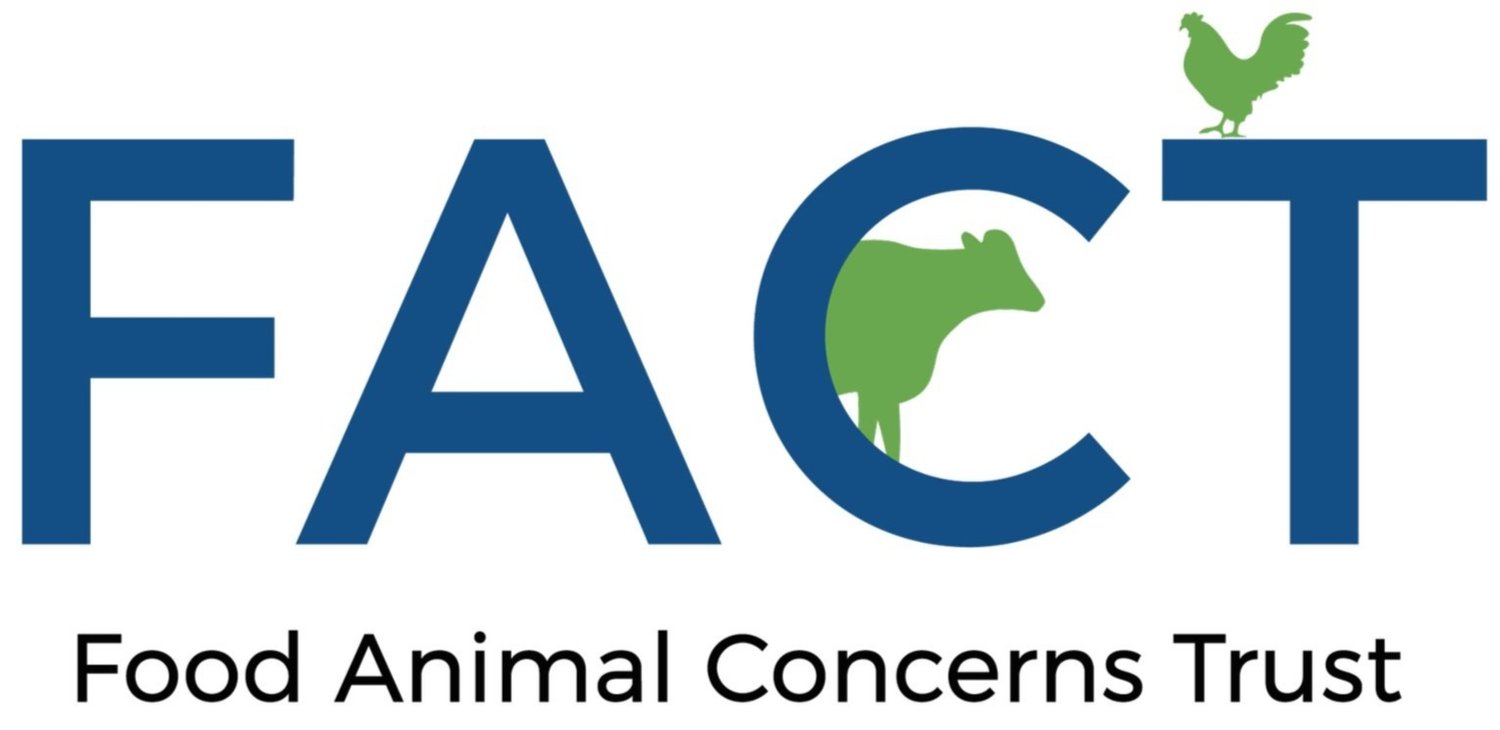Why Farmers’ Market Egg Prices are Stable
By Samantha Gasson, FACT’s Humane Farming Program Director
If you haven’t visited your local farmers’ market lately, you might want to carve out some time this weekend and check out their egg prices. Not only are they likely to be raised humanely, have beautiful, deep orange yolks, and taste amazing, they are probably cheaper than the grocery store for the first time in recent memory.
Last weekend, while selling at market, I got the same question I’ve been getting a lot lately, “Why don’t you raise your egg prices?”. These customers mean well and see the unfairness of pasture raised eggs being close to the same price as commercially raised ones (ours are $7/dz while commercial eggs cost on average $6.22 according to the Department of Labor and Statistics) but they don’t understand how farmers who sell to the consumer price their products. Most of us price based on inputs, not marketplace competition.
Deck Family Farm
It really is astonishing how much the price of commercial eggs has risen over the last year. FACT’s Executive Director, Harry Rhodes, wrote all about why in a recent blog post. In January of 2024, the average white egg raised in confinement cost $2.52/dz; in January of 2025, those same eggs almost doubled to $4.93/dz; there was another big jump to $6.22/dz at the end of March. That’s a 247% increase in 15 short months, with a 126% increase so far in 2025.
Why would anyone pay $6.22 a dozen for pale yellow yolks from overcrowded chickens that never see the light of day or experience the thrill of the chase when hunting a grasshopper when they can go to a local farmers market and get rich orange yolks from chickens happily doing their chicken thing (which includes a lot of hunting).
It might seem like a poor business decision not to take advantage of the egg scarcity, but it doesn't fit the way most farmers selling at farmers’ markets do business.
We have always priced our products based on our costs, which include feed, the cost of replacement birds/animals, and general overhead. This is likely how most farmers selling directly to the public price all their products if they want to stay in business. Most pasture-based operations can’t compete with the grocery store on most products, as it costs more to raise animals humanely and outside. The fastest way for a farmer to go out of business is to try to compete with the “big” guys and grocery store prices. Our customers know that if our chicken feed costs go up, so will our eggs, if the replacement cost of chicks goes up, so will our eggs, if our general farm expenses go up, you guessed it, so will our eggs.
Across the Creek Farm
There are many opinions on why grocery store eggs are going up, but whatever the reason, they are not part of most farmers’ pricing, never have been, and never will be. When the price of store eggs goes down, which they surely will, just remember that when farmers like those in our network could've gouged and raised their prices, they didn’t.
Most farmers who are in it for the long-haul price independently of the commodity market, it's just good business. Plus, the eggs taste better, the hens live carefree lives, and you know you’re supporting a local farmer who cares about their birds and their community.
If you’re not sure where your closest Farmers’ Market is, you can find out here. You can also look for a farm or farm store near you through FACT’s Directory of Humane & Pasture-Based Farms.



